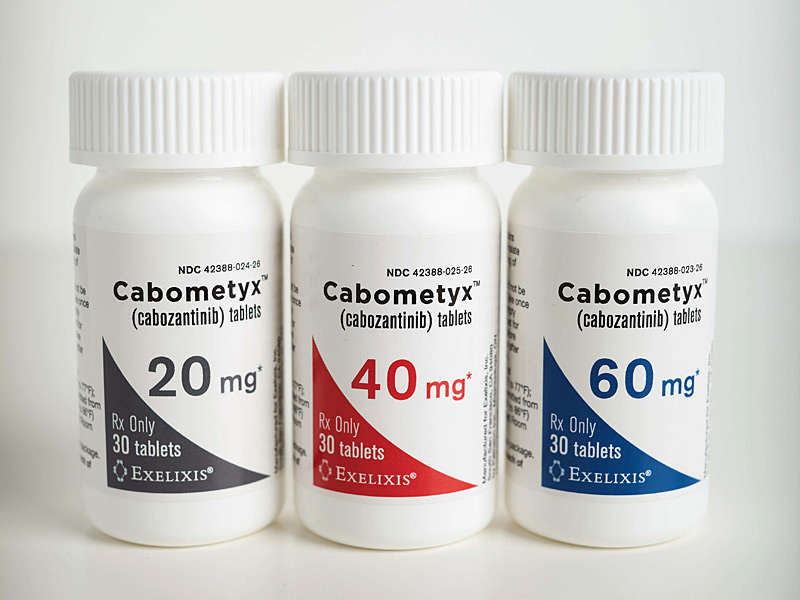Share this Page:
Unfortunately, the National Institute for Health and Care Excellence (NICE) have rejected cabozantinib (Cabometyx®) as a second-line treatment for metastatic kidney cancer for the second time. This is despite it’s proven effectiveness at prolonging the overall survival and progression-free survival of previously treated kidney cancer patients compared to everolimus in the METEOR trial.
Further to a second appraisal committee meeting last month, NICE have taken the unusual decision to issue a second Appraisal Consultation Document (ACD), which was published on the NICE website yesterday. The second ACD follows further analysis of cost-effectiveness information provided by the manufacturer, in addition to extended follow-up data from the METEOR trial. However, NICE have again made the decision that cabozantinib is too expensive to be prescribed for NHS patients with metastatic kidney cancer. They also had concerns over the reliability of some of the data presented by the manufacturer to the appraisal committee, and concluded that the additional benefits of cabozantinib over current treatments were highly uncertain.
This draft decision comes despite cabozantinib being designated as a ‘Promising Innovative Medicine’ by the Medicines and Healthcare products Regulatory Agency (MHRA), the UK regulator, last year. This designation indicates that a drug has potential in patients with a poor prognosis and limited treatment options, but doesn’t guarantee recommendation by NICE for use within the NHS.
The manufacturer, Ipsen, is working with NICE and discussions continue, with a third appraisal committee meeting scheduled for 23rd May 2017. Until final guidance is published, eligible patients will continue to have access to cabozantinib via the Ipsen Managed Access Programme in England. NICE is expected to release its final appraisal decision in August (two months after the original published date).
The Kidney Cancer Support Network (KCSN) are preparing a response to the second ACD, and it is hoped that together with price negotiations by Ipsen, the interim recommendation will be reversed. The appraisal committee did not express a view as to whether cabozantinib will be funded through the Cancer Drugs Fund (CDF), but mentioned that “the Cancer Drugs Fund would not address the areas of uncertainty identified, and that there was not plausible potential for cost effectiveness”. The CDF would enable the manufacturer to prove the cost-effectiveness of cabozantinib during the 24 months that the drug is funded by the CDF.
It is well known that a clinical response to cancer drugs is individual, and some patients respond better than others; KCSN believe that clinicians need to have a choice of drugs to be able to effectively treat kidney cancer. NICE’s decision leaves clinicians with a very limited choice, and is denying patients access to a new and clinically effective drug with proven long-term benefits. This decision also has a profound effect on the way England treats cancer patients, leaving people with kidney cancer at a significant disadvantage and more likely to die prematurely compared to the rest of Europe and America.
KCSN calls upon NICE to review its procedures for the appraisal of drugs for rare and less common cancers. The current appraisal system has proven time and again to be unsuitable for small patient populations, and has been shown to be unfair to different groups of patients, denying rare cancer patients access to life-prolonging treatments during the most difficult time for both them and their families.
If you have any concerns about this disappointing news, please get in touch with Rose or Julia at the KCSN.
Read more about NICE’s decision not to recommend cabozantinib for kidney cancer here.















